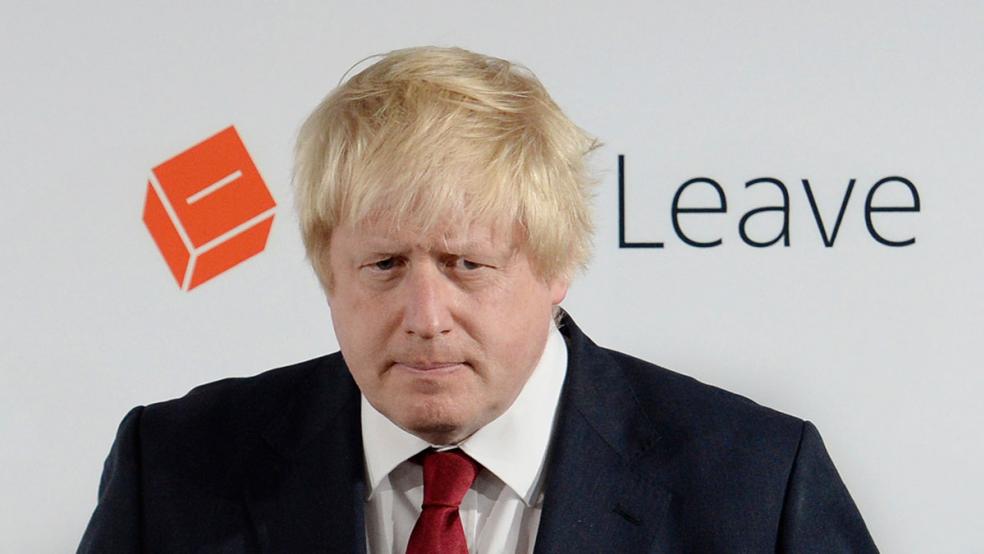It was less than a week ago that it all seemed so clear. The populist effort to pull the United Kingdom out of the European Union had triumphed against all expectations, sending an unmistakable signal that anti-immigrant nationalism was back in vogue and offering the Western world the real prospect that not one but two weird-haired populist demagogues could soon stand at the helm of a pair of great powers.
On this side of the Atlantic, presumptive Republican presidential nominee Donald Trump cheered the British vote to leave the EU and urged his supporters to make a similar choice in November, setting aside conventional choices and embracing as president a man who has promised to deport millions of immigrants, to bar even more from entering the country, and to impose an intrusive surveillance regime on many that remain.
Related: Pushed Around and Left Out. The Frightening US Parallels to Brexit
But Boris Johnson, the flamboyant former London mayor who became the public face of the so-called “Brexit” campaign, shocked supporters on Thursday during a speech that many expected would be the official launch of his campaign for prime minister.
“I must tell you, my friends, you who have waited faithfully for the punchline of this speech, that having consulted colleagues and in view of the circumstances in parliament, I have concluded that person cannot be me,” Johnson said.
The announcement came as his close political ally and current justice secretary Michael Gove declared his own candidacy. Gove had been expected to be one of Johnson’s chief backers, and was a large reason behind the assumption in many corners -- particularly among British bookmakers -- that Johnson would replace resigning Prime Minister David Cameron.
However, in the days that followed the success of the Brexit movement in last week’s referendum, giddy celebration was quickly replaced by the hard reality ahead of a United Kingdom facing possible separation from the EU’s common market. Scotland and Northern Ireland began making noises about referenda of their own to break away from the UK and retain EU membership. And leaders, Johnson chief among them, said they were in no hurry at all to actually deliver official notice under the EU’s Article 50 declaring that they planned a formal separation.
Related: How Britain Could Reverse Its Historic Brexit Vote
At the same time, Johnson’s expected bid for prime minister began looking less like the sure thing than it once had. In polls of Conservative Party voters this week, he trailed Home Secretary Theresa May, a member of parliament who had campaigned against the Brexit vote, by a 17-point margin. Part of the reluctance Conservative voters felt to get behind Johnson’s candidacy may have been related to the increasing sense among those who voted to leave that they had been lied to by Johnson and his fellow Brexiteers.
Most notably, the day after the vote, a prominent pro-Brexit politician, in a video that went viral, admitted on live television that a promise that leaving the EU would guarantee £350 million per week in extra spending on the National Health Service was “a mistake” and that the money would not actually be available to the NHS.
Whether Johnson got out of the race because he believes he cannot win or because he doesn’t actually want to preside over the wrenching overhaul of British society that a departure from the EU would entail is currently a hotly debated topic. There is a strong current of thought, memorably captured in this parody video, that Johnson’s support of Brexit was purely opportunistic, and that he never actually expected to win.
It’s dangerous to draw too many parallels between politics in the U.S. and the U.K. -- though the idea that Donald Trump entered the presidential contest with no expectation of actually winning has been floating around for a long time.
Related: The Big WInners in the Trump-Clinton Race: Hatred, Prejudice, and Voter Disgust
The departure of Johnson from the leadership race, though, and the deeply unsettled state of both political and economic affairs in the U.K. might serve as a cautionary tale for American voters looking at Trump as a vessel for their anger and frustration at a world that looks different than it used to, both in terms of the people who inhabit it and the opportunities it offers them.
British voters who cheered the decision to withdraw from the EU last week are now reckoning with the truth behind the adage, “Be careful what you wish for.”
And Johnson’s withdrawal from the race might be a lesson to Trump himself. The Brexit race seemed to invigorate the former London mayor, but in the aftermath of the vote he seemed much more subdued -- possibly struck by the massive change he had engineered.
Johnson’s experience might be something Trump wants to consider: Leading a populist revolt might be a lot more fun than trying to lead once the dust has cleared.





